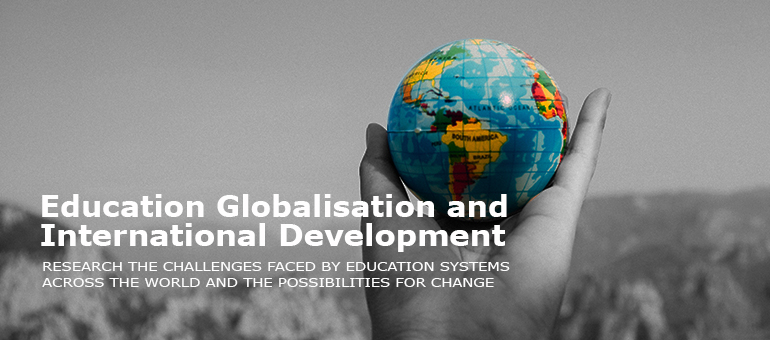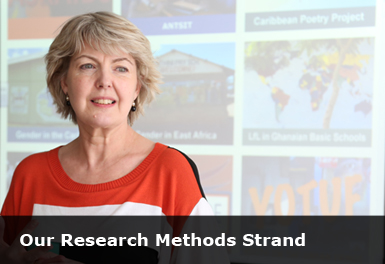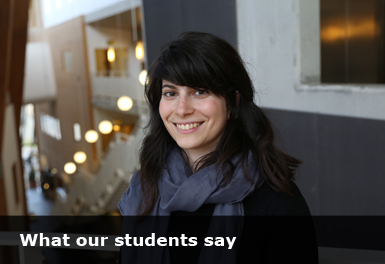
A course for people who are passionate about connecting education to social justice issues
There's this idea that it's Cambridge and will I ever get in but the way the Faculty deals with the application process has been so comfortable
It wasn't just Cambridge deciding if I was right for them but the course directors convincing me that I should apply to Cambridge
Watch more videos on what our student say about EGID at Cambridge, the unique benefits of studying at the Faculty of Education and the impact of their research on global issues.
| Key Facts | |
|---|---|
| Route Co-ordinator: Professor Nidhi Singal [sn241@cam.ac.uk] | Full Time enrolled 24-25: 29 |
| Open to: Full Time only | |
| Deadline: 27/01/2026 | Application Written Task |
Overview of the course
The MPhil in Education, Globalisation and International Development (EGID) focuses on a range of contemporary issues of globalisation and international development in the field of education, in order to interrogate the latest theoretically grounded, and empirical research with our students. Our programme explores the relationship between education and wider socio-economic processes, with a particular focus on countries in the Global South. The programme offers an opportunity to engage with these issues from different theoretical lenses and diverse empirical approaches.
Why choose us?
- Engage with cutting edge research being conducted by members of the teaching team who are involved closely in influencing international and national policy discourses and implementation.
- Benefit from a wide range of research centres at the faculty, including REAL and PEDAL and research networks, such as CaNDER and CLAREC
- Be involved in small group discussions with a select group of 25-30 students per year, who come from varied disciplinary and professional backgrounds
- Benefit from inclusive, participatory and research-oriented pedagogy
- Opportunities to deepen your scholarship with the support and personalised mentoring from one-to-one supervisions
- Engage with invited scholars, particularly from the Global South, who lead public talks as part of our seminar series titled: “Politics of knowledge building in education and international development”
- Benefit from the vast array of opportunities available in the Collegiate university
- Connect with Alumni working across diverse fields and geographical spaces
- Develop research skills which will enable you to continue to a PhD, if desired
- Develop transferable skills for employability across a range of organisations
What does this course offer?
You will:
- examine critically, the challenges and priorities faced in the field of international education and development, these include, examining complex inequalities arising from the intersections between poverty, disability, gender, race and class; migration-both within and across nations; forced displacement; the impact of unprecedented and unexpected school closures; and re-scripting the role of families and communities in education
- develop a nuanced appreciation of the different education systems across the world, with a particular emphasis on countries in the Global South
- critically engage with paradigms of globalisation and international development, both from the North and South and use these lenses to explore topical issues of relevance to educational policy and practice
- reflect on ways in which unequal power relations between different countries shape international commitments, programme development and funding mechanisms in the field of education and international development
- the role that Northern led educational research can play in reinforcing hierarchies of knowledge and devaluing indigenous knowledge production.
 How is the course organised?
How is the course organised?
The course begins in early October and runs over three eight week terms.
Please see programme summary for an indicative list of sessions.
In addition, you have one to one meetings with your supervisor.
Assessment
Assessment will be through a range of formats which may include coursework, written and oral examinations, posters, presentations and projects and a dissertation, submitted in June.
 Research Method Strand
Research Method Strand
Alongside these modules, you will benefit from Research Methods teaching.
This is taught across all thematic Masters within the Faculty of Education, allowing you to interact with others on different courses.
It covers a broad range of social science research methods and is essential for Masters level understanding and critical engagement with the research literature in many specialist areas and in education more generally.
Through this strand you will acquire the skills necessary for designing, conducting, analysing, interpreting and reporting a research study for thesis.
Detailed information on Research Methods Strand.
 Who are the course team?
Who are the course team?
The course is staffed by a team of established faculty members who provide teaching and supervision. Other colleagues also contribute one-off lectures:
 Where do our students go?
Where do our students go?
Our postgraduates are the future leaders in their field. They have a wide choice of career options, including:
Foundations and national organisations are also important options for our postgraduates
 What our students say
What our students say
Watch videos about our student experiences of EGID at Cambridge from those that attended the course.
